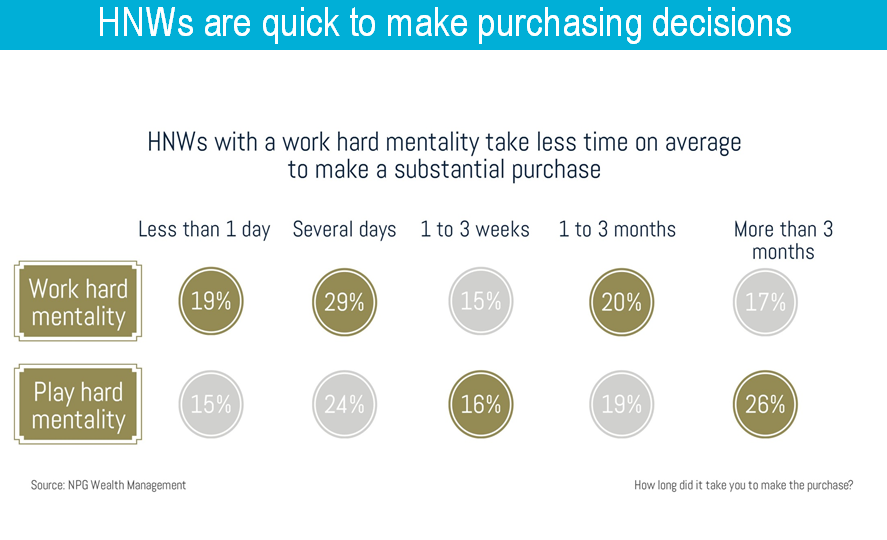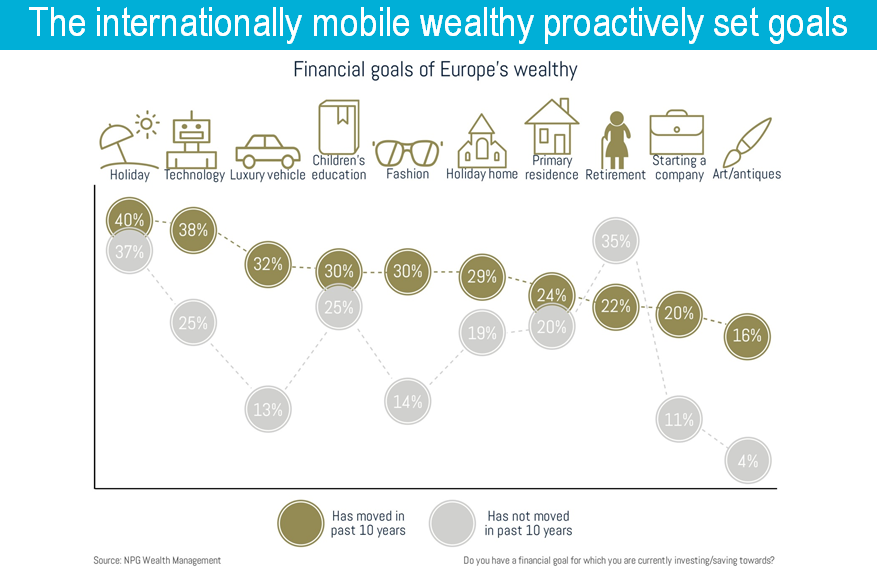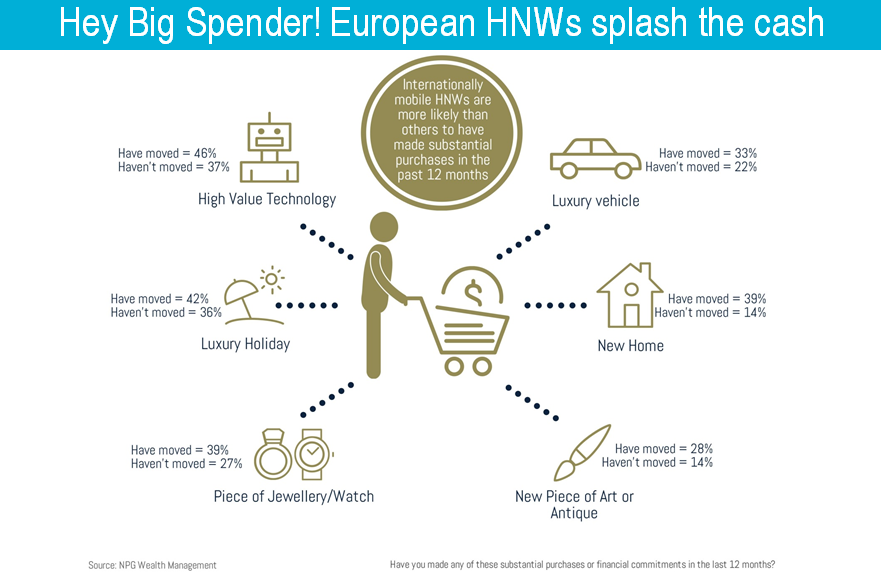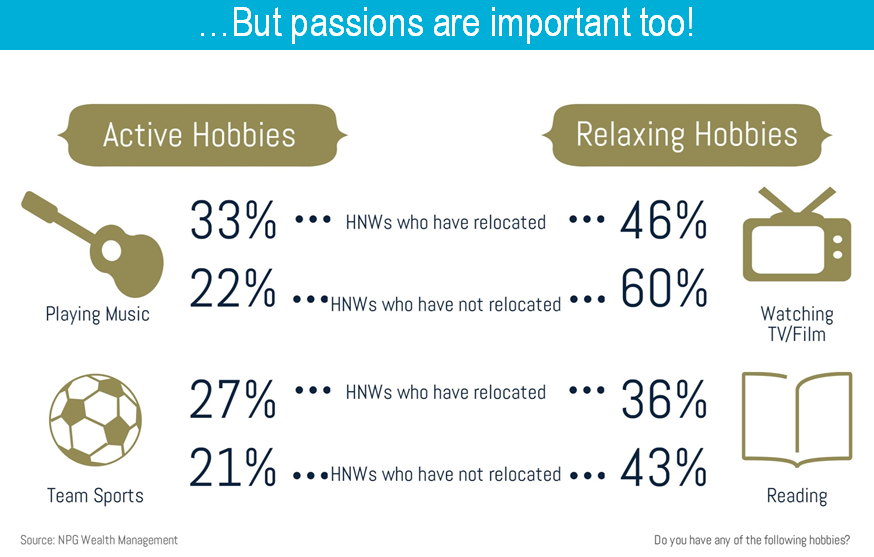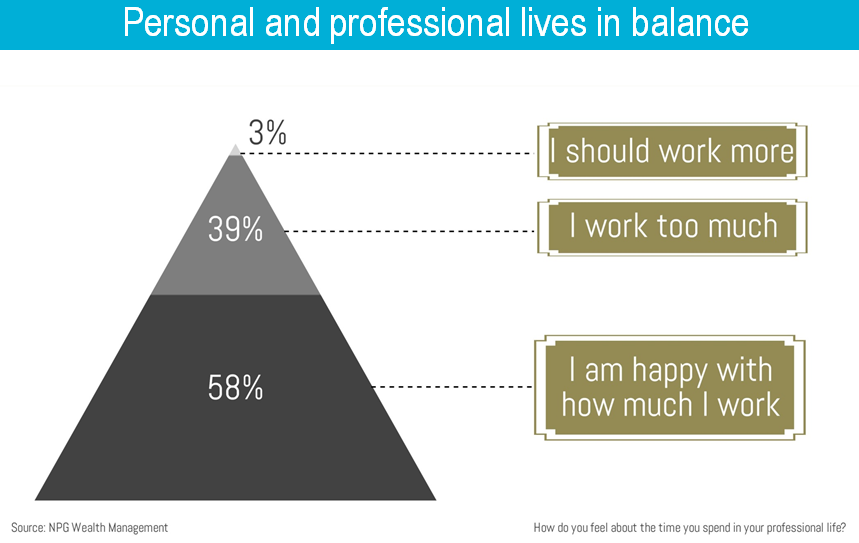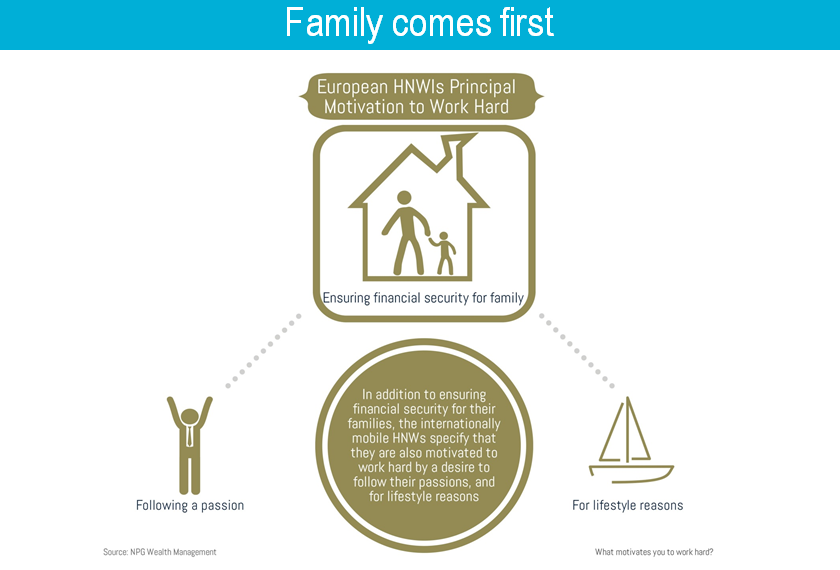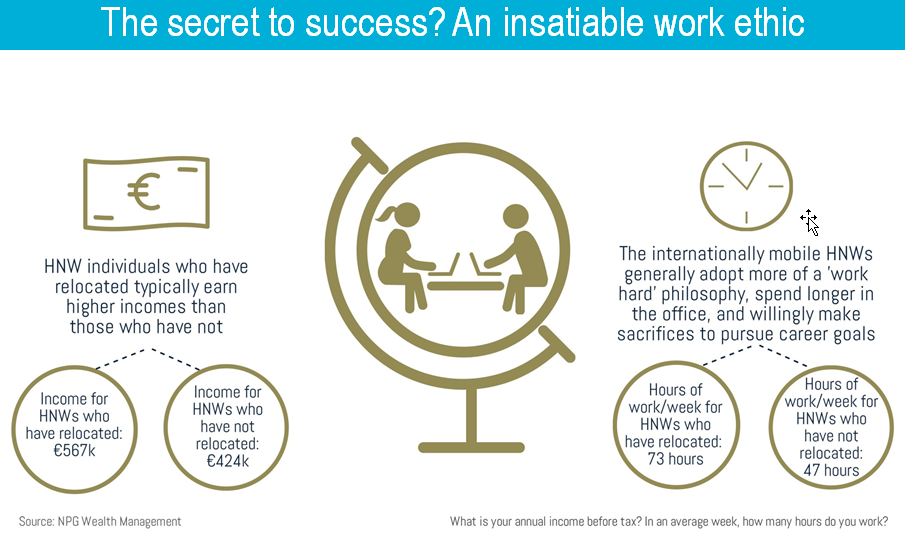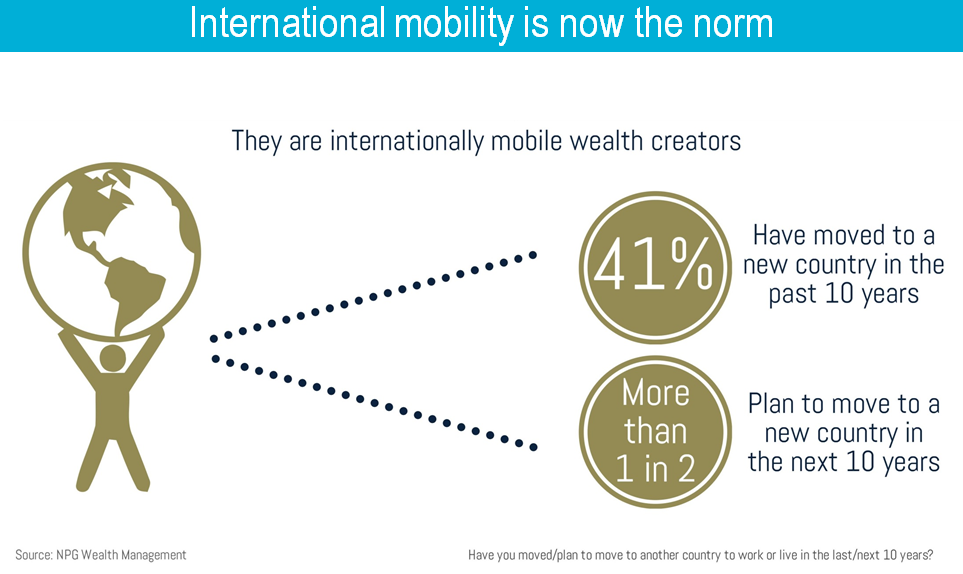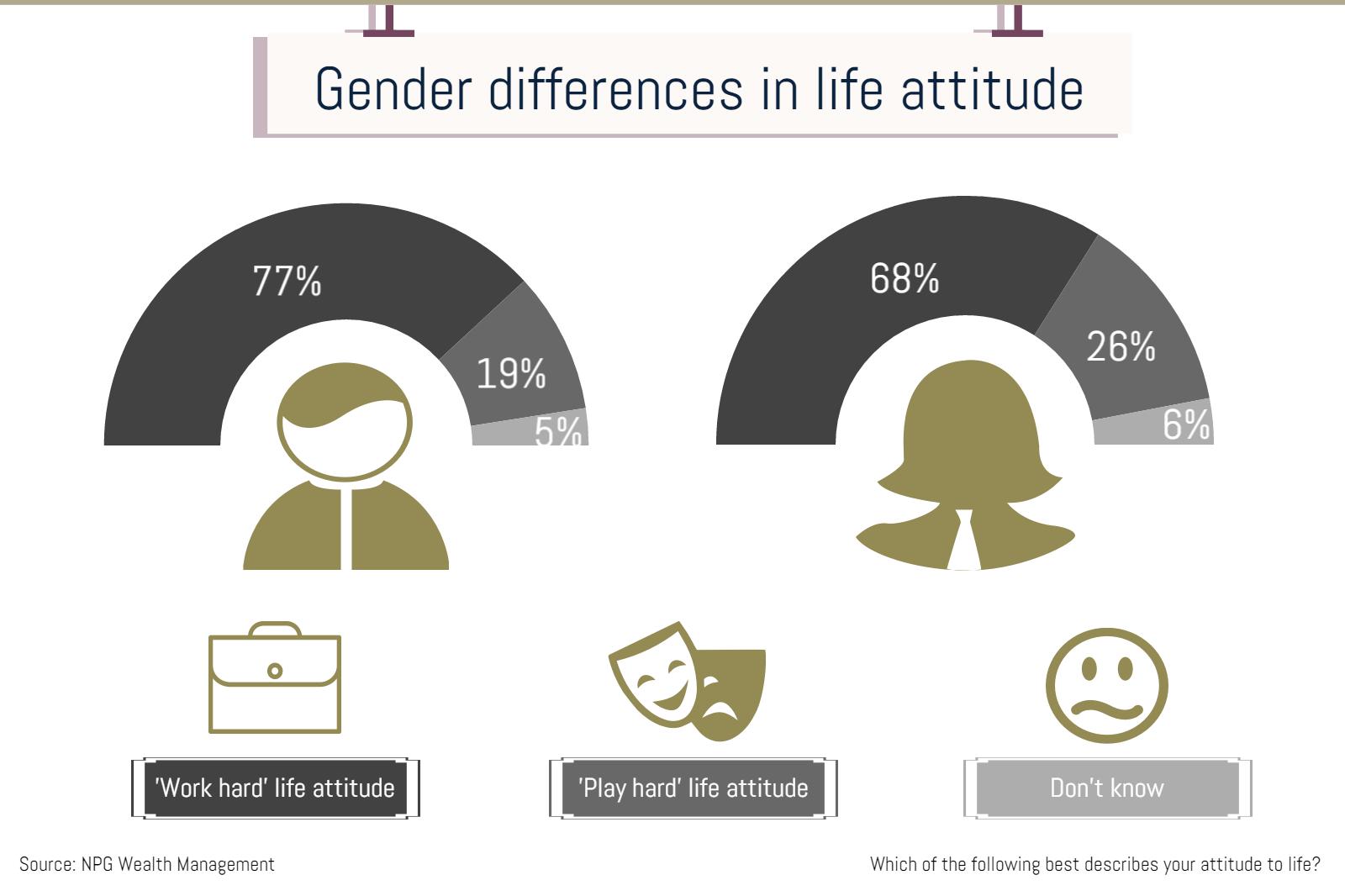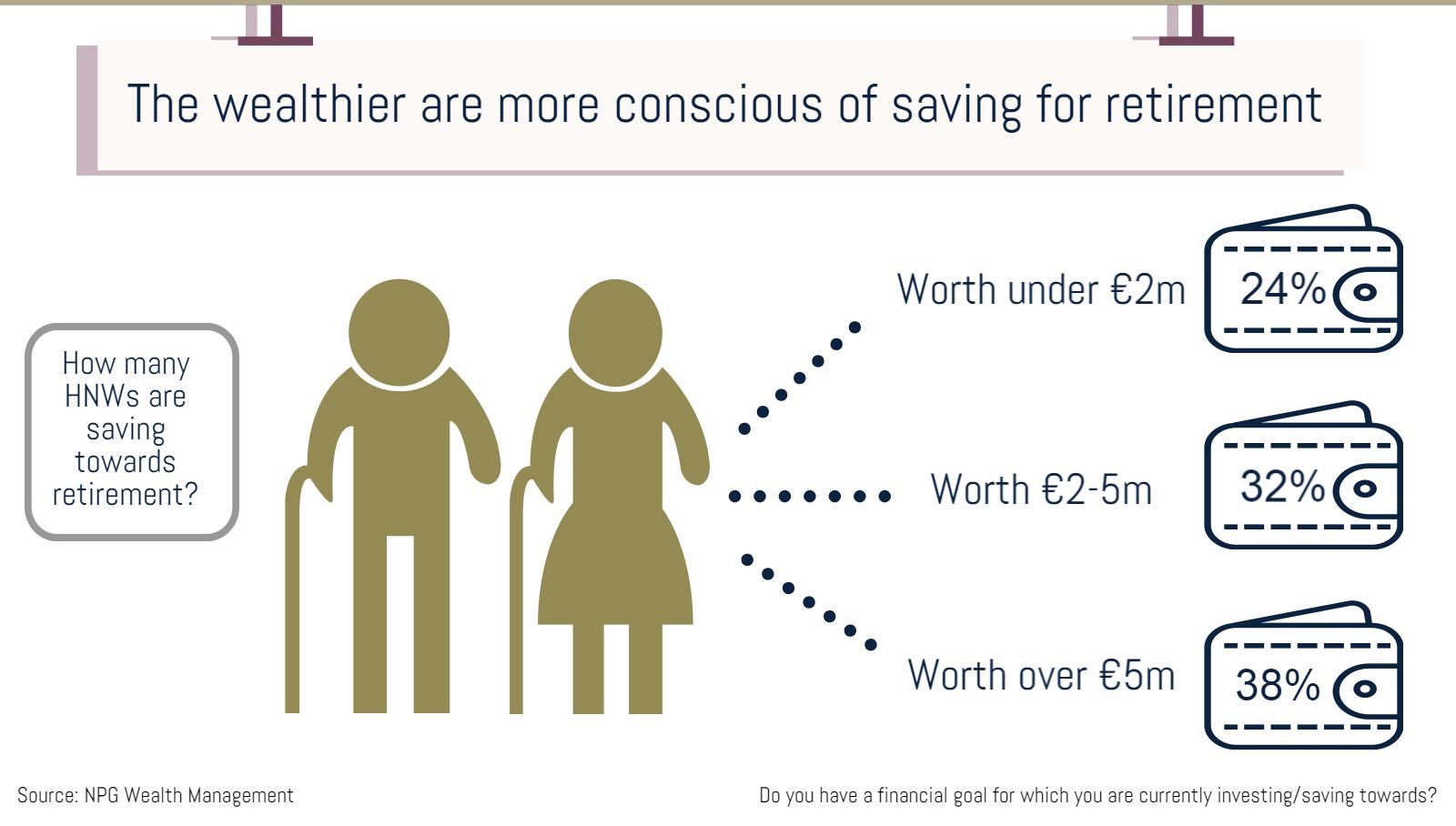Globalisation is creating a world in which HNW mobility is increasingly the norm. But what are the implications of this cross-border lifestyle on the personal and professional contexts of Europe’s wealth creators? And, how does their attitude to work and play affect their requirements for financial advice?
Our latest report reveals the answer to these questions by asking 500 wealthy Europeans to tell us about their lives. We sought out individuals in the UK, France, Germany, Belgium, the Netherlands, Sweden, Denmark and Finland, who had an average net worth of EUR3.6 million.

Key findings:
– Forty-one per cent of European high-net-worth-individuals (HNWI) have moved to a new country to live or work during the last decade and more than one in two plan to do so within the next 10 years.
– Individuals who have relocated typically enjoy higher incomes than those who have not, but these rewards come at a price. These international globe-trotters work harder than average, spend longer in the office and willingly make sacrifices to pursue career goals.
However,
– When they play, these individuals play hard. Relocaters typically pursue hobbies that require active participation. Whether it is playing music, participating in team sports or pursuing solo success at driving, writing, collecting or volunteering, these individuals prefer active pursuits. Passive hobbies such as watching TV or reading hold less appeal.
– Less than 1 in 3 HNW Europeans use a financial advisor as their main source of advice. Instead, they use a broad range of sources, suggesting that they are willing to take advice but yet to find that one, truly meaningful advice relationship.
